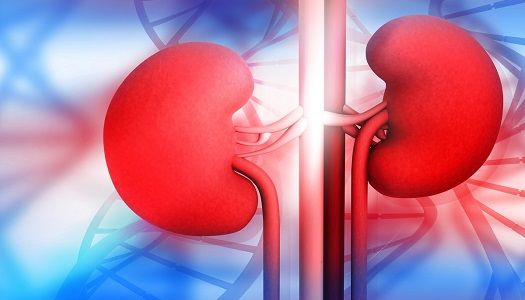Access to Kidney Transplants Drops for People with HIV
People with HIV aren't getting the life-saving transplants they need.

One of the groups most at risk for kidney failure is not getting access to life-saving transplants.
When it comes to people with kidney failure on dialysis, those with HIV are 19 times more likely to die than those who aren’t infected. If patients with HIV receive a kidney transplant, their risk of premature death drops by 79% compared to staying on dialysis.
Jayme Locke, MD, MPH, FACS, and colleagues examined how kidney transplant access differs for those with and without HIV. Data from 2001 to 2012 was collected from 1,636 patients with HIV and 72,297 people without HIV. All of the participants were on the waiting list for the kidney transplant.
Not only were patients with HIV less likely to receive a kidney, but having HIV also cut down their chances of receiving a kidney from a living donor.
“The supply of decreased donor organs remains limited, and as such, living kidney donors have become a critical source of organs,” Locke explained in a news release.
Compared to those without HIV, infected individuals were 28% less likely to receive a transplant. Of those HIV-positive patients who received a transplant, they were half as likely as HIV-negative individuals to get one from a living donor.
Physicians couldn’t use organs from HIV-positive donors, even if the recipient was also HIV-positive, until 2013 when the HIV Organ Policy Equity (HOPE) Act was implemented. In March 2016, physicians at Johns Hopkins Medicine in Baltimore narrowly beat surgeons at Hahnemann University Hospital in Philadelphia in performing the first HIV-to-HIV organ transplant—which was a kidney transplant.
“While the recent HOPE Act permits HIV+ individuals to serve as living kidney donors for HIV+ patients, no HIV+ person has ever been a living kidney donor, likely because little is known about risks HIV+ persons may incur from donating a kidney,” Locke continued.
Sindhu Chandran, MD, and Peter Stock, MD, PhD, from the University of California, San Francisco (UCSF) wrote an accompanying editorial on the research. They explained that HIV-positive organs can be lifesaving transplants for patients, but the risks need to be weighed with a moral imperative.
“Data from transplants conducted within the framework of the HOPE Act will increase knowledge about the safety and efficacy of HIV+ to HIV+ kidney transplants in the US, including possibly from living donors, and help define the future role of this strategy in improving equity and redressing disparities in transplantation for HIV+ patients,” Chandran and Stock wrote.
More than 30% of people with HIV in just the United States alone have kidney disease. With the possibility of progressing to kidney failure, this group has an especially high need for transplants, yet this study shows that they have less access.
“We see this study as the foundation for demonstrating the significance/need for identifying a subset of HIV+ persons who are both willing and healthy enough to be living kidney donors such that HIV+ to HIV+ living kidney transplantation can be done safely and effectively,” Locke concluded.
The study, “Access to Kidney Transplantation among HIV-Infected Waitlist Candidates,” and the accompanying editorial, “Opportunities and Challenges for Kidney Donation from and to HIV-Positive Individuals,” was published in the Clinical Journal of the American Society of Nephrology. The news release was provided by the American Society of Nephrology.
Related Coverage:
Aging Getting Tougher for People with HIV
Patients Observed After HIV Treatment Damages Kidneys
HIV Structural Discoveries Could Lead to Advanced Treatments